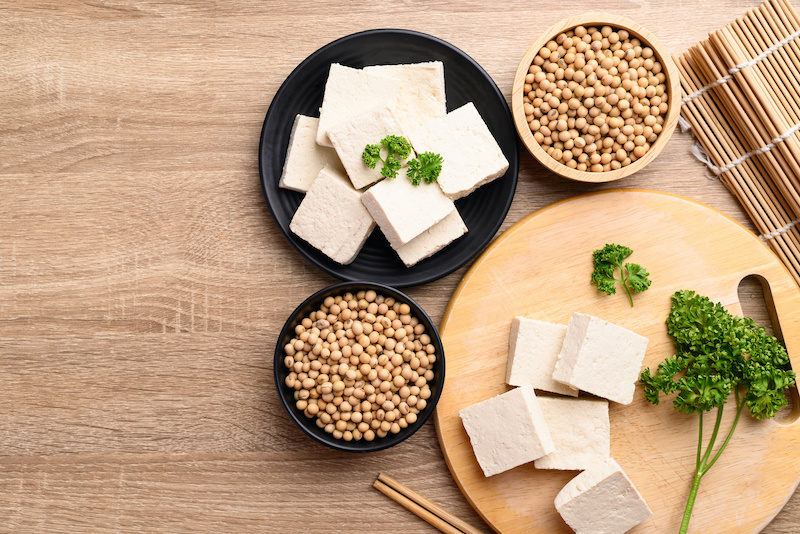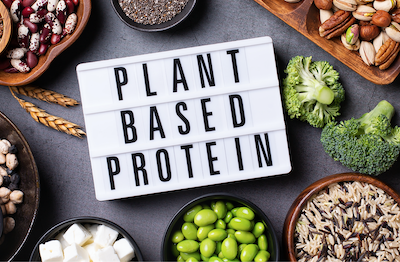Plant-Based Proteins: A Complete Guide to Healthy and Sustainable Eating

Introduction
As more people look to improve their health and reduce their environmental impact, plant-based proteins have gained popularity as a nutritious and sustainable alternative to animal proteins. This article provides a comprehensive guide to plant-based proteins, their health benefits, and how to incorporate them into your diet.
Why Choose Plant-Based Proteins?
Health Benefits:
- Plant-based proteins are typically lower in saturated fats and cholesterol than animal proteins, making them heart-healthy. They are also rich in fiber, antioxidants, and essential nutrients that support overall health.
Environmental Sustainability:
- Plant-based proteins have a lower environmental footprint, using fewer resources and producing fewer greenhouse gas emissions than meat production. Choosing plant-based proteins can help reduce your carbon footprint.
Weight Management:
- High-fiber, plant-based proteins promote satiety, helping you feel full longer. This can reduce overall calorie intake, supporting weight management and reducing the risk of obesity.
Best Sources of Plant-Based Proteins
Legumes:
- Lentils, Chickpeas, and Black Beans: High in protein, fiber, and essential nutrients, legumes are versatile and can be used in soups, salads, stews, and more.
Whole Grains:
- Quinoa, Brown Rice, and Farro: Quinoa, in particular, is a complete protein, containing all essential amino acids. Whole grains add protein and fiber to your meals.
Nuts and Seeds:
- Almonds, Chia Seeds, and Flaxseeds: Rich in protein and healthy fats, nuts and seeds are great for snacking or adding to smoothies, oatmeal, and salads.
Soy-Based Foods:
- Tofu, Tempeh, and Edamame: These soy products are complete proteins and are excellent meat substitutes, providing all the essential amino acids.
Vegetables:
- Broccoli, Spinach, and Peas: While lower in protein than other plant-based sources, many vegetables contain protein and can be paired with other protein-rich foods to meet your needs.

How to Incorporate Plant-Based Proteins into Your Diet
Try Meatless Mondays:
- Start with one meatless day per week, substituting meat with plant-based proteins like beans, lentils, or tofu.
Experiment with New Recipes:
- Explore plant-based recipes to keep your meals exciting and delicious. Try making veggie burgers, lentil stews, or stir-fries with tofu.
Combine Proteins for Complete Amino Acids:
- While some plant-based proteins lack certain amino acids, combining different sources (e.g., rice and beans) can ensure you get a complete profile of essential amino acids.
Snack on Protein-Rich Foods:
- Keep nuts, seeds, or roasted chickpeas as healthy, protein-rich snacks to keep you full between meals.
Gradually Replace Animal Proteins:
- Start by replacing one or two animal protein sources per week with plant-based options. Gradual changes can make the transition smoother and more sustainable.
Conclusion
Plant-based proteins offer a healthy and sustainable alternative to animal proteins. With options like legumes, whole grains, nuts, and soy-based foods, it’s easy to incorporate plant-based proteins into your diet. Embracing plant-based eating can benefit your health and help reduce your environmental impact.
Summary:
- Plant-based proteins are heart-healthy, high in fiber, and environmentally sustainable.
- Key sources include legumes, whole grains, nuts, seeds, soy-based foods, and protein-rich vegetables.
- Tips for incorporating plant-based proteins include trying meatless days, experimenting with new recipes, and combining different protein sources for complete amino acids.

This article reviewed by Dr. Jim Liu, MD and Ms. Deb Dooley, APRN.
There’s nothing more important than our good health – that’s our principal capital asset.
#medical #telehealth #umedoc






